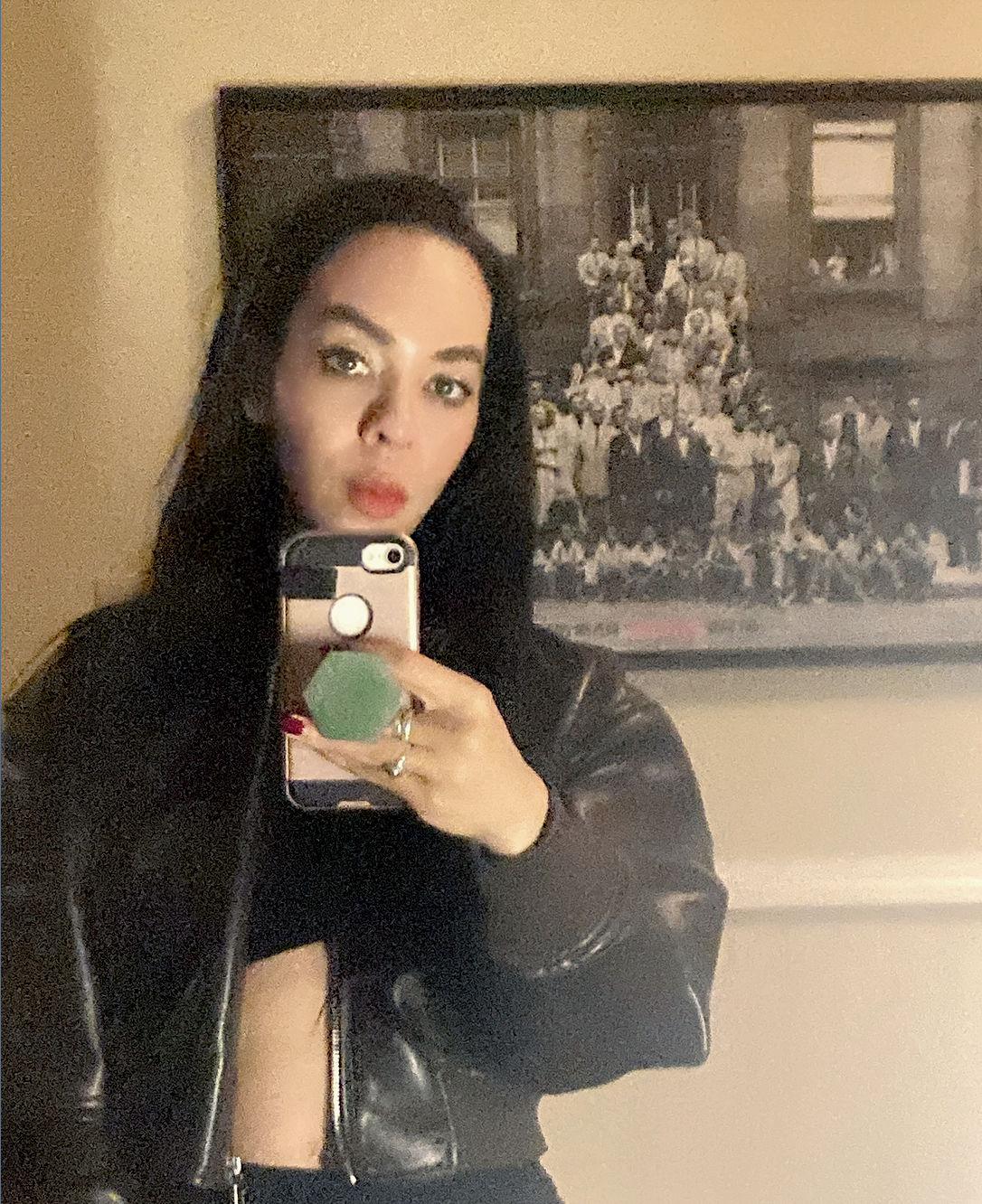Harmony Holiday

I can see the grift machine sputtering in its delayed, downward spiraling reaction to black is not an ideology. “I Am Changing,” Whitney Houston version (1986), is this grift-bot’s exit music, its sonic avatar. It shucks off, admitting its malfunction occurred while it was chasing empty glamor and clout, so there’s an alibi: the throes of a self-imposed seduction. Lighthearted spirit possession by ambivalent spirits, half-demonic, half-seraphic, and sometimes arbitrary and stoic, wedged into a trench in the clouds, color struck. This is an early entry in my digital notebook, where I annotate my online and archival research in ways that allow it to sing and medley, without losing sight of the fact that these are often footnotes for serious writing projects that themselves would malfunction without elements of play and improvisation. This is how I collaborate in and with my solitude, give it its problem back, until it haunts its source with nonlinear assemblies of uninvited accompanists and is troubled into faith in ensembles.
Throughout this dispatch, intentionally fuzzy and wild in places, to mimic the feel of walking from a serious discussion into a loud party, I’m contemplating handlers, an archetype I’m writing an interpretive history of, within the context of black entertainment. What’s being dug up from the recesses of the industry since the arrest of P Diddy insinuates that what’s been packaged and sold as black culture since the ‘90s, helped one man create a blackmail bank for hundreds of celebrities. Tapes of them performing illicit sex acts or acts that would reveal an off-the-record sexual orientation which contradicts their public image, were allegedly confiscated in Homeland Security’s raid of his properties, with some being sold on the black market and revealing the abuse of famous minors, allegedly. The notebook format, because it is forced to freestyle and accumulate by association before being arranged into a score of footnotes, softens the blow of these now-open secrets. This is vintage devastation defined by its affective future, because most of the present is speechless. Nobody wants to talk about it, we’re suddenly cowards, delusional amnesiacs, so bloodless without our ‘stars’ to sabotage our personal ambitions that we don’t want to learn of their deficiencies, lest we might inherit them from the decades of collective, misguided celebrity worship. We prefer the frivolous rumors about break-ups and new product lines. The unwillingness or inability to process the evil of those onto whom we project so much virtue turns many into hysterics, heretics, lunatics howling at shade-immune phantoms.
But that too is a two-way performance, of surprise and of apologia, or of denial and acceptance, or ruin and rehabilitation in the same feint, feigned, never engendered. All egos are injured and the soul leaks and slurs in the territory of this score-keeping, in the form of Sammy Davis Jr. half-mumbling ‘that nigga’s crazy,’ and MF DOOM’s whimsy on a sailboat in the sunlight, and Monk’s perfect dismissal when he’s called not nice. It’s mean here, where regions between the mind and soul touch in tongues, it’s unforgiving of the unforgivable intimacy between scenes, how they are seances of one another and quintets of federal agency operatives at a celebration, their own funeral. These are funeral rites, concentric circles of data strobing mistakes clean into a ditch. Lonnie Holley and Fred Moten discuss patterning, quilting, backstage. Spiritual awakening looms, gets in the way of indulgent despairing, so that instead of making something out of these trenchant, stampeding black feet running alongside one another toward nothing in particular, instead of being somebody, identity collapses into so many running feet in clay or cast iron, bare or bleeding in dress shoes patent-leather dress shoes left over from the funeral service.
My mind wanders to James Baldwin’s account of his childhood friend calling him after Martin Luther King’s funeral, asking if he could have the suit he’d worn, because he’d told a television interviewer he could never wear it again without feeling all of the morbidity and ennui of that mortified occasion. They met in Harlem at the friend’s flat for the exchange, where Jimmy was treated like a petulant diva/exile. He met their expectations on purpose, handed over the contraband and left them forever in that uptown apartment to revile and need him. This is how black entertainment, as a secret branch of the US government always at its service, perhaps thanks to the blackmail bank being kept by one of its volunteer agents, might walk off stage with some dignity intact. Hand over what we came for on your way to the gallows. The gallows of this score, the abyss, houses gospels, repentant and saved souls. The heavenward tilt of a black pastor’s head as he feels Stevie Wonder’s chord tremble, the smile in the pastor’s eyes as he stands up to join the stampede knowing there’s no destination but away toward some vanishing window in the broken machine, and then realizing, we are not the machine, we are its fuel, what it cannablizes to survive. With the grift machine shattered the voice of God is clearer, many will hate that, and need new famous people to stand in for a higher power and all of it will repeat and we will have kept a shady unkempt unaccountable selfish record of the upheaval that eventually heals us better than complacency ever could. My notebooks are how I imagine it would feel if the voices of a chorus of gods entered the machine and told us how to love them and betray them with the same acts, then made us promise we would.